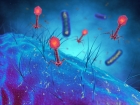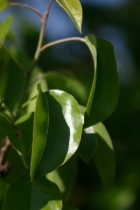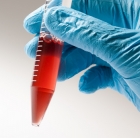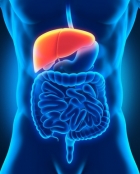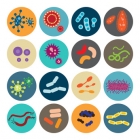Press monitoring
Moon shrooms? Fungi eyed to help build lunar bases and Mars outposts
15.1.2020 | Press monitoring
Fungus could be very much among us when humanity sets up shop on the moon and beyond. NASA researchers are investigating the potential of mycelia – the mass of nutrient-absorbing, widely branching underground threads that make up much of a fungus's bulk – to help construct outposts on the moon and Mars. "Right now, traditional habitat designs...
Taking one for the team: How bacteria self-destruct to fight viral infections
13.1.2020 | Press monitoring
Researchers at University of California San Diego School of Medicine have discovered how a new immune system works to protect bacteria from bacteriophages (phages), viruses that specifically infect bacteria. This new system is unusual in that it works by abortive infection – the infected bacterial cell self-destructs to keep the infection from...
Insulin made from egg yolk promises cheaper treatment for diabetics
10.1.2020 | Press monitoring
The insulin pumps diabetics currently rely on do a great job of delivering the hormone as needed, but need regular replacing due to what are known as fibrils. These form over a day or two as insulin compounds accumulate into clumps and create the risk of blockages, but scientists in Australia have engineered what they say is a safer alternative,...
Immunotherapy supercharges metal nanoparticles to destroy cancer cells
8.1.2020 | Press monitoring
An international team of cancer researchers has developed a new type of copper-based nanoparticle that can kill tumor cells in mice. While the technology showed effectiveness on its own, by combining it with immunotherapy the scientists say it produced long-lasting effects, quickly killing off any cancer cells that dared to return. The therapy...
Poplars genetically modified not to harm air quality grow as well as non-modified trees
6.1.2020 | Press monitoring
Field trials in the Northwest and Southwest show that poplar trees can be genetically modified to reduce negative impacts on air quality while leaving their growth potential virtually unchanged, says an Oregon State University researcher who collaborated on the study. The findings, published today in the Proceedings of the National Academy of...
Supercharged immune cells shrink tumours with RNA vaccines help
3.1.2020 | Press monitoring
Vaccine drives growth of T cells engineered to attack cancer cells, according to experiments in mice. People with several types of blood cancer have reaped enormous benefits – including long-term remission – from treatment with CAR-T cells, immune cells modified to fight malignant invaders. But technical hurdles have limited these cells’...
Agricultural parasite avoids evolutionary arms race, shuts down genes of host plants
1.1.2020 | Press monitoring
A parasitic plant has found a way to circumvent an evolutionary arms race with the host plants from which it steals nutrients, allowing the parasite to thrive on a variety of agriculturally important plants. The parasite dodder, an agricultural pest found on every continent, sends genetic material into its host to shut down host defense...
Paper-based test could diagnose Lyme disease at early stages
30.12.2019 | Press monitoring
About 300,000 cases of Lyme disease, which is caused by the tick-borne bacteria Borrelia burgdorferi, are diagnosed in the U.S. each year, according to the U.S. Centers for Disease Control and Prevention. Early symptoms of the disease include the characteristic skin rash, along with fever, headache, chills and muscle aches. If not treated...
Eyeing organs for human transplants, companies unveil the most extensively gene-edited pigs yet
27.12.2019 | Press monitoring
If any swine is fit to be an organ donor for people, then the dozens of pigs snuffling around Qihan Bio’s facility in Hangzhou, China, may be the best candidates so far. The Chinese company and its U.S. collaborators reported today that they have used the genome editor CRISPR to create the most extensively genetically engineered pigs to date –...
Fishing for novel cellulose degraders
25.12.2019 | Press monitoring
One of the most vital pieces of equipment for fly fishing is a boxful omají f lures. Designed with feathers or wires to mimic an insect or a particular movement, each of these lures are the bait designed to attract specific catches. A similar technique has been developed by researchers led by Tanja Woyke at the U.S. Department of Energy (DOE)...
